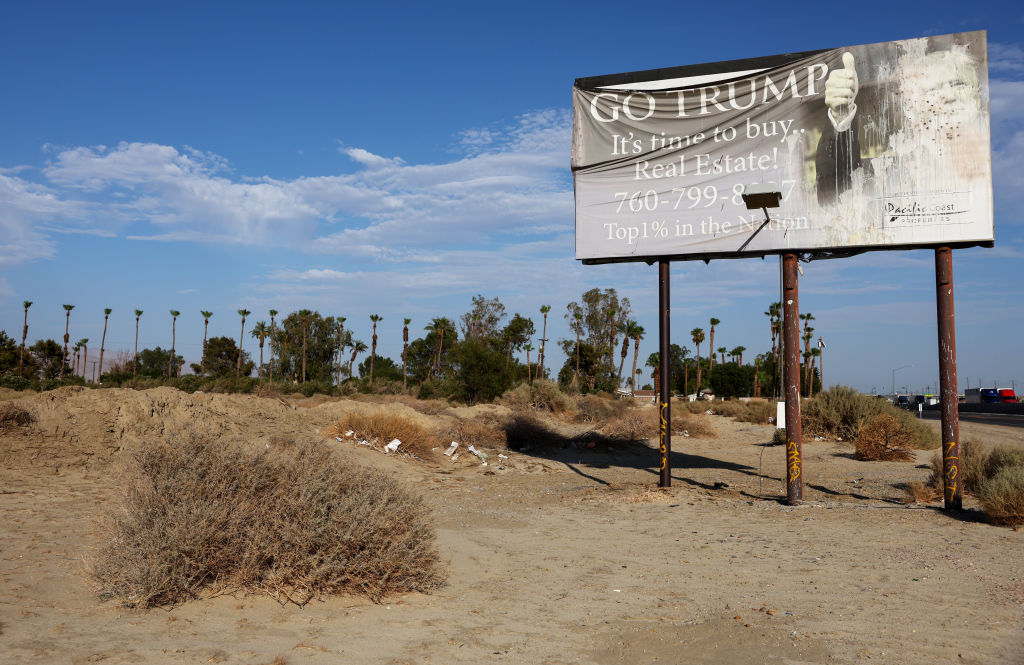
Last weekend, the climate-related headline on the print issue of the New York Post caught my eye during a gas station pit stop. Instead of focusing on the crazy heat and climate extremes that had dominated other outlets, the cover page headline read “abuse of power” and a spread inside claimed that the state’s green policies would soon dramatically raise the cost of electricity—an easy way to rile readers during the summer months when air conditioning is already driving up electricity bills.
It made me think, amid the climate-related disruption currently being experienced across the country, will there be a moment that jolts skeptics into action? It’s easy to see how these scenes could lead to some reflection—and some accelerated action—on the threat climate change poses to human life and society. Indeed, over the past decade I’ve heard a similar argument time and again: eventually climate extremes will force skeptics of climate policy to get with the program.
It is an optimistic yet reasonable sounding vision. But, if the past few months are any indicator, it seems something closer to the opposite may be happening. As temperatures have spiked, conservative backlash around the world to climate policy may have also reached a fever pitch. In the U.S., former President Donald Trump has turned electric vehicles into a major attack line targeting President Joe Biden. In a late June speech, he called Biden’s policies “environmental extremism” and claimed they were “heartless and disloyal and horrible for the American worker.’
In Spain, Vox, the far-right party, campaigned on softening climate policy, among other things, ahead of a national election on July 23. During the campaign, Vox called the country’s 2021 climate law “the return to caves and poverty” as the country pushes measures like water conservation to help adapt to a warmer planet.
More From TIME
The debate over green policies also infiltrated an important bellwether election in Britain. In the Uxbridge constituency outside of London, on July 20, the Conservative Party unexpectedly won a seat in an election dominated by discussion of expanding congestion pricing. Within hours, British Prime Minister Rishi Sunak said that climate solutions should be executed in a way that is “proportionate and pragmatic” and “doesn’t unnecessarily give people more hassle and more costs in their lives.” (Unlike others listed here, Sunak does support the broader aims of the energy transition).
Despite the widely held view that experiencing climate change might lead to wider acceptance of climate policy, research on the link between public opinion and climate events is mixed. In short, it’s not clear exactly how or whether extreme weather triggers people to reassess their views on climate change. Perhaps unsurprisingly, it's clear that partisanship matters here. A 2020 paper in the journal Nature Climate Change pointed to a clear dividing line in the U.S. Extreme weather tends to reinforce the link between climate change and weather effects in Democratic and/or highly educated communities—and less so elsewhere.
This dynamic means that extreme weather may actually be creating an opportunity for conservatives to cater to their base. As heat waves or flooding raises the specter of climate change for certain groups, others can use it to raise the specter of the costs of climate policy to rally their most loyal supporters who are primed to oppose it anyway.
Politicians and commentators are searching for answers. In Britain, for example, the Labour Party has rolled back its signature green policy amid this consternation. But some analysts are advocating for another approach: keep the policy and get a better message. After all, a world where extreme weather events lead to a backtracking in climate policy would be a scary one indeed.
A version of this story also appears in the Climate is Everything newsletter. To sign up, click here.
More Must-Reads from TIME
- Where Trump 2.0 Will Differ From 1.0
- How Elon Musk Became a Kingmaker
- The Power—And Limits—of Peer Support
- The 100 Must-Read Books of 2024
- Column: If Optimism Feels Ridiculous Now, Try Hope
- The Future of Climate Action Is Trade Policy
- FX’s Say Nothing Is the Must-Watch Political Thriller of 2024
- Merle Bombardieri Is Helping People Make the Baby Decision
Write to Justin Worland at justin.worland@time.com